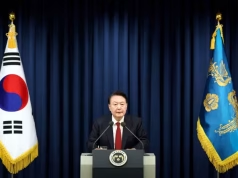The implementation of the free education policy has greatly contributed to the elimination of extreme poverty in China, authorities have said.
China Anti – Poverty Research Institute Professor Wang Sangui said providing free education to vulnerable members of society is one of the poverty alleviation strategies his government put in place to eliminate extreme poverty in the country.
Professor Sangui stated that Government provided free primary and secondary school education to learners from poor households.
ZANIS reports that Professor Sangui said this when he gave a lecture to international Journalists who are attending a Journalism fellowship programme at the China International Press Communication Centre (CIPCC) in Beijing.
“Additionally, students from identified vulnerable homes were given living allowances. This reduced school expenditure for poor households and ended the intergenerational transmission of poverty,” he said.
China achieved the United Nations Sustainable Development Goal number one of eliminating extreme poverty in 2020, ten years ahead of schedule.
The Renmin University of China Lecturer said Government lifted over 770 million people out of poverty between 1978 and 2010.
“Government additionally lifted 100 million of the poor population out of poverty between 2013 and 2020. It established manufacturing industries so as to provide employment for the citizenry. It also promoted cooperative agricultural production and health care subsidies to the poor,” Professor Sangui said.
Meanwhile, Zambian Education Activist Pascal Mulenga noted that Zambia can draw lessons from China with a view to eliminating extreme poverty.
Speaking in a separate interview, Mr. Mulenga, who is also the Zambia Union of All Persons with Disabilities (ZUAPD) President, observed that the Zambian Government is on the right trajectory with regards providing education opportunities to the vulnerable members of society.
He said education is one of the tools that can bring about social economic transformation in the country.
Mr. Mulenga, however, called on Government to consider making education more disability-inclusive by ensuring the cost of disability material such as braille material, hearing aids and wheelchairs are more affordable.
“Vulnerable populations including the differently abled can contribute to development too especially if they are educated.
” If our country is to reach the level of China’s development, there is need to ensure all the schools are funded adequately and have necessary infrastructure such as electricity, disability equipment and computer laboratories,” he said.
Mr. Mulenga stated that rural schools should be made more conducive so as to promote the retention of teachers thereby promoting education in the rural population.
Source: SABC
In other news – Row arises over Kwacha grounds in Ndola
The proposed subdivision and sale of Stand number 1346 Kwacha Grounds has sparked widespread opposition among residents of Ndola.
Ndola Central Member of Parliament Frank Tayali has emphasized the importance of preserving community spaces and fostering a brighter future for Ndola Central and beyond. Tayali observed that despite claims of the said land being idle, ” Kwacha Grounds holds significant value. Read more















